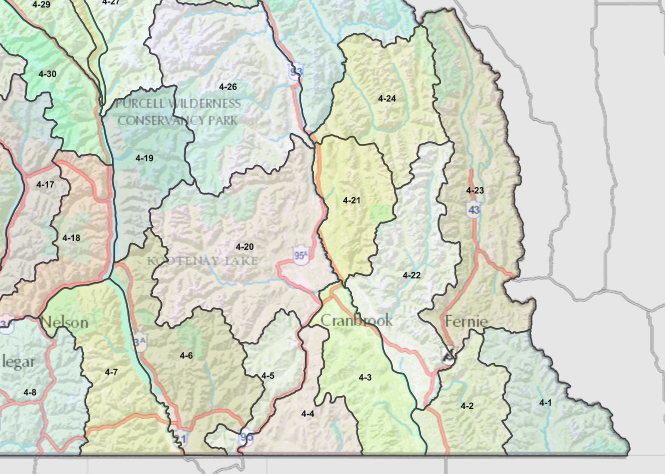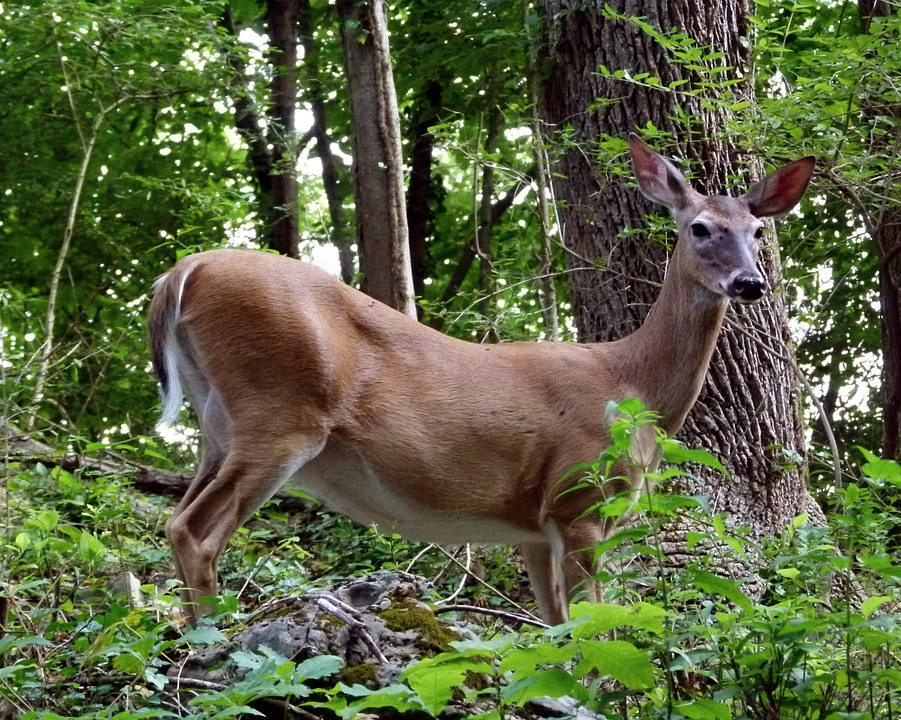The Provincial Government has implemented a mandatory sampling program that will require hunters in the Kootenay region to submit deer heads to test for chronic wasting disease (CWD).
The B.C. Government said this is part of a proactive effort to prevent CWD from entering the province and impacting moose, deer and elk populations.
Starting on Tuesday, September 1st and going until December 20th, hunters will be required to submit heads of mule and white-tailed deer killed in specific wildlife management areas along the B.C. border in the Kootenay region (units 4-1, 4-2, 4-3, 4-4, 4-5, 4-6, 4-7).
Heads may be dropped off at any Conservation Officers Service office during open hours or any of the following locations:
- ʔaq’am (St. Mary’s) Ktunaxa Nation, 7470 Mission Road, Cranbrook.
- Canyon General Store, 4493 Canyon-Lister Rd, Canyon.
- Elkford Rod and Gun Club, United Steel Workers Local 7884 Union Hall, 12 Water Street, Elkford.
- Golden Rod and Gun Club, 1710 Blaeberry River Rd, Golden.
- Grasmere General Store, 3335 Highway 93, Grasmere.
- Gwinner’s Country Butcher, 2230 Thomason Road, Kimberly.
- Jaffray Sports and Hardware, 2270 Jaffray Shop Rd, Jaffray.
- Kimberley Sausage and Meats, 3433 McGinty Rd, Kimberly.
- Rick’s Fine Meat and Sausage, 1450 B Theatre Road, Cranbrook.
- Rocky Mountain Meats, 109 Centennial Square, Sparwood.
- Skyway Auto Service, 1696 Nicks Island Road, Creston.
- South Country Services, 5385 Highway 3, Elko.
- Two Pump Paul’s, 8741 Highway 3 and 95, Yahk.
- Wes’s Country Meats, 1097 7th Avenue, Fernie.
- Wynndel Foods, 5128 Highway 3A, Wynndel.
The B.C. Government said CWD has not yet been detected in the Province, but 64 white-tailed deer, mule deer and moose around Libby, Montana were discovered with the illness in 2019. This is the first time the disease was found west of the Rocky Mountains.
CWD is a progressive, fatal nervous system disease that impacts members of the deer, or cervid, family. The disease is caused by an abnormal protein and can spread when a healthy animal comes into contact with an infected animal or an environment, such as water, food or soil, contaminated with CWD.
“CWD is not a naturally occurring disease, it is very difficult and costly to manage and once established, and can lead to declines in cervid populations. There is no vaccine or treatment and the disease is always fatal. An infected animal or carcass will shed prions, which are practically impossible to destroy, into the environment where they will persist for several years, possibly decades,” said the Provincial Government.
The disease is not known to infect humans or non-cervid animals. Symptoms of CWD include weight loss, drooling, poor coordination and stumbling.
The Peace and East Kootenay regions have been determined to be high-risk entry points for CWD as it has been detected in both Alberta and Montana.
Hunters from around B.C. are being asked to bring in elk, moose and deer heads for testing, especially in the Peace region, to ensure the province remains free of CWD.
Anyone who encounters an animal displaying symptoms of the disease should report it to the provincial Wildlife Health Program at 250 751-3219 or the Report all Poachers and Polluters hotline at 1 877 952-7277.





